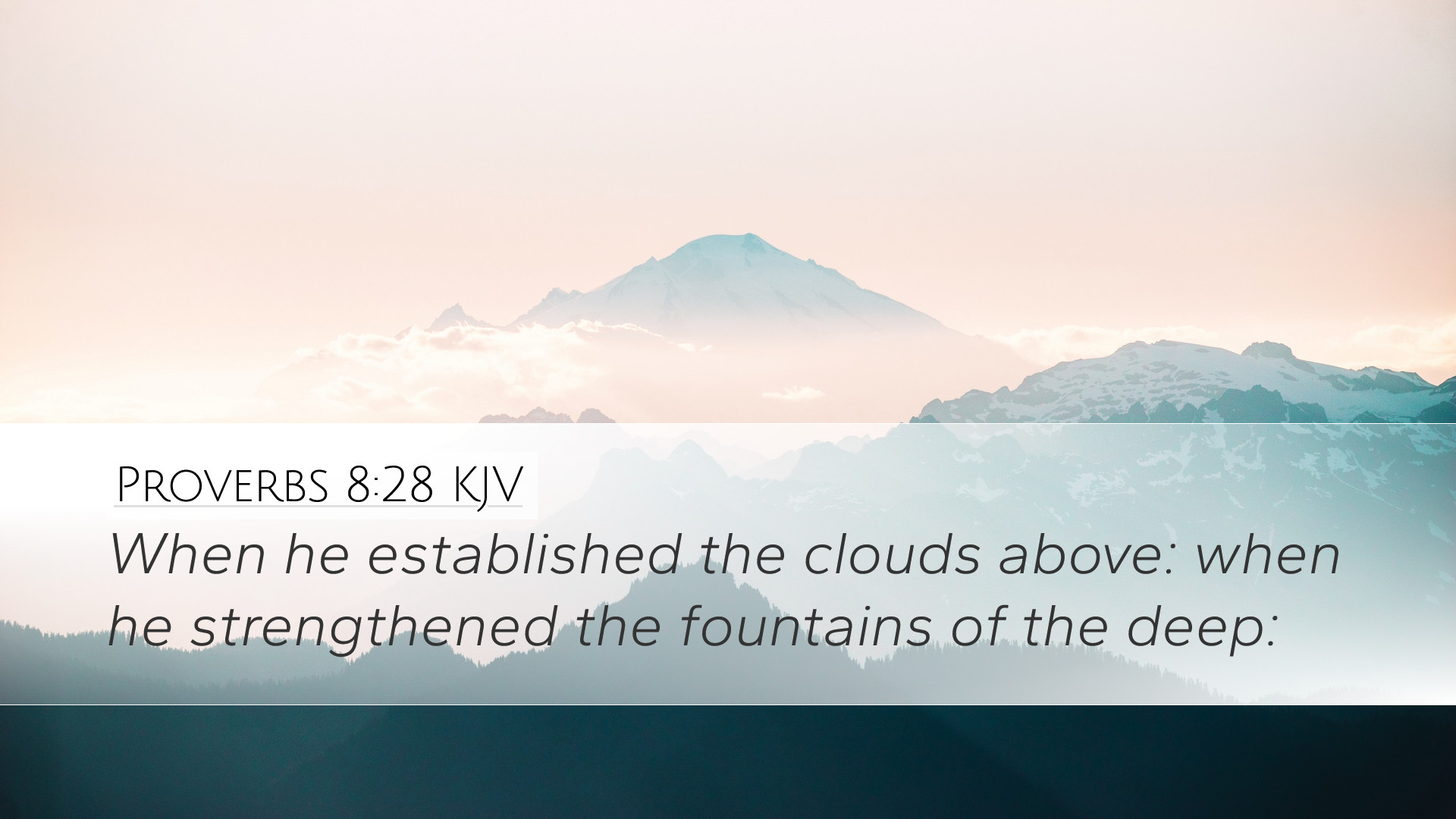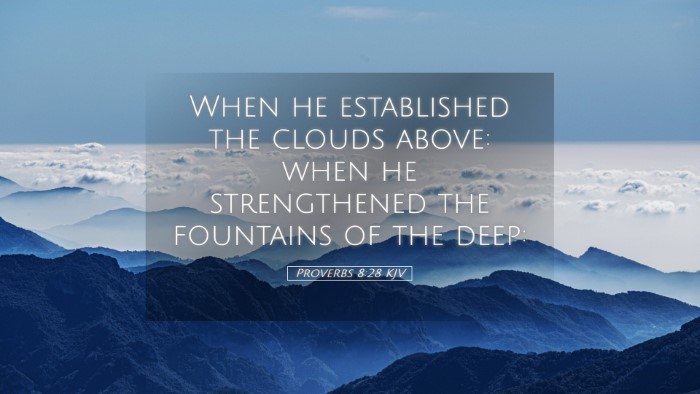Commentary on Proverbs 8:28
Verse: Proverbs 8:28 (KJV)
"When he established the clouds above: when he strengthened the fountains of the deep:"
Introduction
This verse, nestled within the grand poetic discourse of Proverbs 8, highlights the wisdom of God in creation. It serves as a powerful reminder to readers of the divine order and intentionality present in the natural world. The insights from respected public domain commentaries will deepen our understanding of this verse, illustrating its theological significance and its implications for faith and practice.
The Context of Proverbs 8
Proverbs chapter 8 is personified as Wisdom, portrayed in a way that emphasizes her eternal existence and her role in creation. The chapter serves as a vital part of the broader wisdom literature in the Bible, urging readers to seek understanding and to embrace the teachings that lead to a fruitful life.
Matthew Henry notes that the passage speaks to the greatness of wisdom as it relates to creation. By incorporating the creation narrative within the speech of Wisdom, the author invites the audience to recognize the foundational role of divine wisdom in the world.
Divine Establishment of Creation
The phrase "established the clouds above" invites reflection on God's sovereignty over the elements. According to Adam Clarke, this establishment signifies not only God's creative power but also His ongoing governance of the natural order. The clouds serve as symbols of provision and nourishment, highlighting God's care for creation.
Furthermore, the "fountains of the deep" suggests foundational aspects of the Earth itself, including the seas and waters. Albert Barnes emphasizes that the imagery conveys both stability and dynamism. God not only created these elements but continues to strengthen and uphold them, ensuring the balance and functionality of the world.
Theological Implications
In considering the establishment of clouds and water, we see rich theological implications. The imagery employed conveys God's authority over creation, which serves as a critical aspect of the biblical worldview. As Henry points out, understanding God as the architect of the universe encourages humility and reverence in His presence.
Additionally, this verse underscores the connection between wisdom and creation. Wisdom is not only an abstract concept but is intimately involved in the physical world. Clarke highlights that understanding God's wisdom as foundational to creation impacts how believers view the world: it is inherently valuable because it emanates from a wise Creator.
Practical Applications
The reflections on Proverbs 8:28 lead to several practical applications for pastors, students, and scholars. First, the recognition of God's ongoing work in creation should inspire awe and worship. Acknowledging that God continues to uphold creation offers believers a sturdy foundation for their faith.
-
Encouragement in Creation: The assurance that God strengthens the foundations of the deep can provide comfort during times of uncertainty. It reminds believers that the natural world operates under divine authority.
-
Wisdom in Action: The practical application of wisdom involves recognizing and participating in God’s creative work. This could mean advocating for stewardship of the environment or engaging in acts that reflect the character of God within the world.
-
Inspirational Teaching: Pastors can use this imagery to teach congregations about the nature of God and His creation. Emphasizing God's wisdom in creation can embolden believers to trust in His guidance through life's tumultuous moments.
Conclusion
Proverbs 8:28 serves as a theological jewel, reflecting the intertwined realities of divine wisdom and creation. Through the insights of revered commentators, it is clear that recognizing God's establishment of the clouds and the fountains of the deep leads to a deeper understanding of His nature and a richer appreciation for the world He has made.
As we engage with this text, may we cultivate a heart of wisdom that mirrors the creative purpose of God, encouraging both a respectful reverence for His creation and a committed stewardship of the responsibility it entails.


